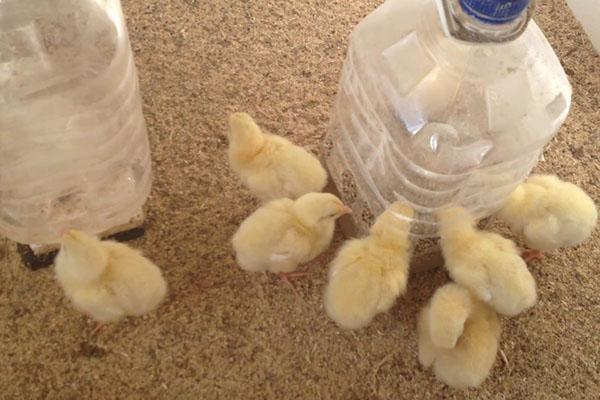General recommendations for keeping day old chicks
 Day-old chicks are susceptible to many viral diseases. The immunity of chicks depends on the conditions of detention in the first week after birth. Young animals are vaccinated at incubation stations, where day-old chicks can be purchased.
Day-old chicks are susceptible to many viral diseases. The immunity of chicks depends on the conditions of detention in the first week after birth. Young animals are vaccinated at incubation stations, where day-old chicks can be purchased.
In order to remove chicks from hatching eggs on their own, you need to use an incubator, and in the first days after the appearance of the chickens, vaccinate them against Newcastle disease.
Consult your veterinarian before vaccinating chicks. If vaccinations are given too early, the chick's immune system will not cope with the disease.
In order for the chicks to grow up healthy, in addition to vaccination, it is necessary to provide them with proper conditions for keeping:
- cleanliness in the brooder;
- temperature regime;
- round-the-clock lighting;
- suitable feed base.
Day-old chicks can be kept in a regular cardboard box with sawdust bedding or in a brooder on a mesh floor. The litter will keep the chicks warmer, but the sawdust needs to be changed every day to avoid the spread of diseases such as coccidiosis.
Temperature regime
Chickens freeze very much if the temperature is not observed. Comfortable temperature for keeping chickens from 28ABOUTFrom to 32ABOUTC. The temperature in the small brooder can be maintained using an infrared lamp or a homemade heater using an incandescent light bulb and a glass jar.
The day old chick brooder light should be on continuously. You cannot turn off the light bulb until the chicks are two weeks old. Then the chickens will grow up strong and healthy, because they will eat feed around the clock.
Fodder base
It is very important for chicks to find a good feed base. From the first days of life, chicks must be fed with a special "starter" compound feed. It is a balanced compound feed with mineral additives and a high protein content. It contains almost no fiber, which chickens cannot absorb.
On such a diet, chicks must be kept up to 21 days. Then the young are transferred to the fattening compound feed. For the prevention of intestinal diseases, the first three days the chickens are given a slightly pink solution of potassium permanganate, and then clean filtered water.
Use nipple drinkers to keep the water clean. Once installed in the brooder, the chicks will always be dry and not freeze.